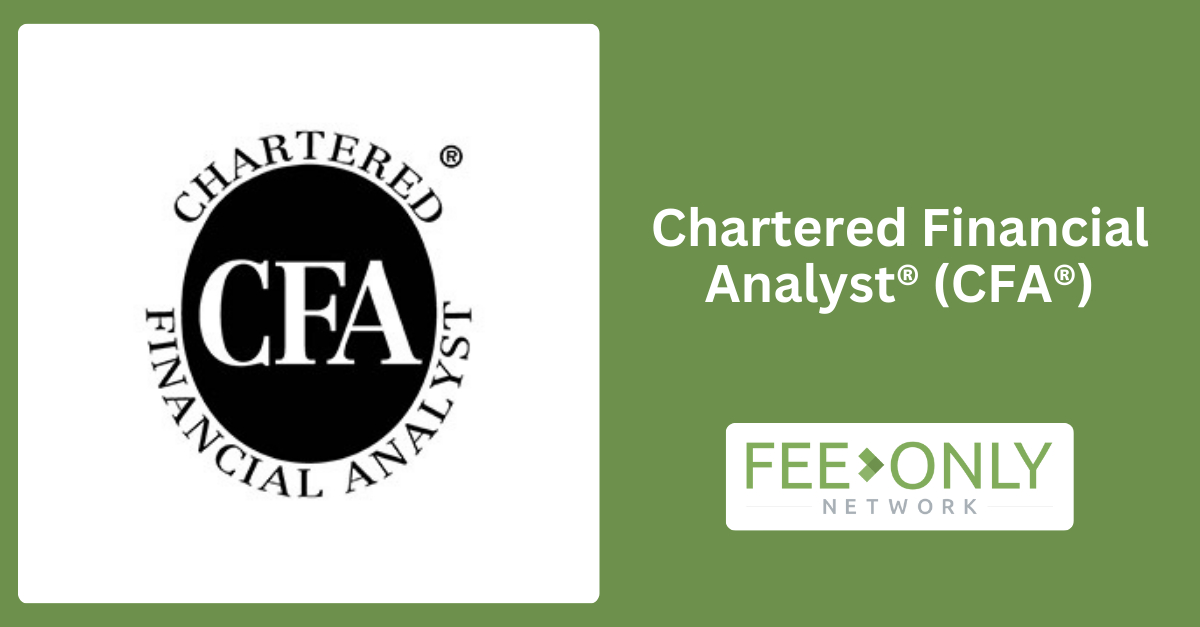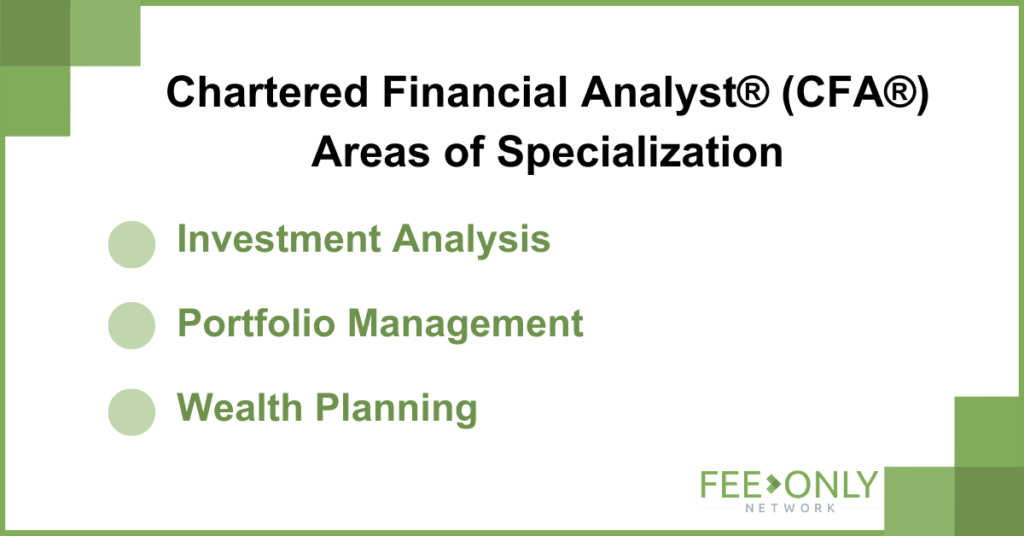
Updated: March 26, 2025

A Chartered Financial Analyst® (CFA®) charterholder is a financial professional certified by the CFA Institute, a global nonprofit organization recognized for setting high standards in investment analysis and portfolio management. The CFA® designation is widely regarded as one of the most respected credentials in the finance industry, earned through rigorous exams, professional experience, and adherence to ethical standards. Financial advisors who hold the CFA® charter are often seen as highly qualified experts in investment strategy, risk management, and financial decision-making.
A CFA® charterholder is a professional who has earned the CFA designation through the CFA Institute. This certification reflects deep expertise in investment analysis, asset allocation, portfolio management, and ethical financial practices. The CFA charter is considered a gold standard among financial professionals and is often held by portfolio managers, research analysts, and high-level advisors in investment firms and financial institutions.
To become a CFA® charterholder, candidates must meet several stringent requirements set by the CFA Institute:
Candidates must either:
The CFA Program includes three sequential levels of exams—Level I, II, and III—each testing progressively complex investment and portfolio management topics. These exams assess skills in areas such as:
Each exam requires roughly 300 hours of preparation, with total study time commonly reaching 900+ hours.
Charterholders must complete at least 4,000 hours of relevant work experience in roles related to investment decision-making.
Candidates must agree to abide by the CFA Institute’s Code of Ethics and Standards of Professional Conduct throughout their careers.

Hiring a CFA® charterholder as your financial advisor can offer significant advantages:
CFA charterholders are trained in in-depth investment analysis, portfolio construction, and risk management strategies. Their skillset often surpasses general financial planning, making them ideal for clients focused on long-term investment growth or sophisticated portfolios.
CFA charterholders must follow a strict code of ethics and professional conduct, which includes putting clients’ interests first, disclosing potential conflicts of interest, and maintaining transparency. This fosters trust and accountability in the advisor-client relationship.
The CFA curriculum emphasizes unbiased financial analysis and disciplined decision-making. Advisors with this credential rely on data-driven strategies rather than sales-driven recommendations.
The CFA designation is recognized worldwide, meaning a charterholder brings international best practices and a global perspective to your investment strategy.
To retain the designation, CFA charterholders must stay updated on financial regulations, market trends, and ethical standards, ensuring your advisor is knowledgeable about current conditions and investment tools.
The CFA® charter is a prestigious designation awarded by the CFA Institute to professionals with proven expertise in investment analysis and portfolio management. For consumers, working with a CFA charterholder means partnering with an advisor who upholds rigorous ethical standards and possesses advanced investment knowledge. Though earning the designation is demanding, the value it brings to clients seeking sophisticated financial guidance is substantial.
Governing Body:
The CFA® designation is issued by the CFA Institute, a global association of investment professionals committed to promoting ethics, education, and professional excellence.
What does a CFA charterholder actually do?
A CFA charterholder typically works in roles involving investment research, portfolio management, or high-level financial analysis. Many serve as financial advisors with a focus on investment strategies and asset allocation.
Is a CFA charterholder the same as a financial advisor?
Not necessarily. While some CFA charterholders are financial advisors, others may work as analysts, portfolio managers, or in corporate finance. The CFA designation is more investment-focused than general financial planning.
How long does it take to become a CFA charterholder?
Most candidates take about four years to complete the program, including passing three exams and meeting the required work experience.
Can CFA charterholders give financial advice?
Yes, if they are registered appropriately in their jurisdiction. Many CFA charterholders provide investment advice as part of their financial advisory services.
Is the CFA designation worth it for clients?
Absolutely. Working with a CFA charterholder can provide peace of mind that your advisor has a high level of investment expertise and ethical accountability.

Allan Slider is the Founder of FeeOnlyNetwork.com, a one-of-a-kind digital platform that elevates the visibility of fee-only financial advisors, individually and collectively. Fee-Only advisors are ONLY compensated by the client and NEVER make commission by selling financial products, or receiving kickbacks from brokerage firms. Allan is a consumer & investor advocate and a 20+ year veteran of online marketing for financial advisors.

If you're seeing this message, it's because the web browser you're using to access our site is much older and no longer supported. Due to privacy and safety concerns, we don't allow older browsers to access our site. In order to access WhyFiduciary.com, please use a newer browser, like Internet Explorer 10 or above, Google Chrome, or Mozilla Firefox.
Download a newer browser